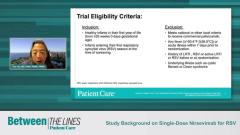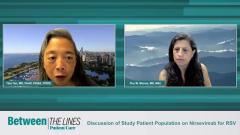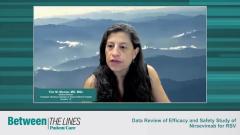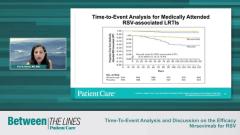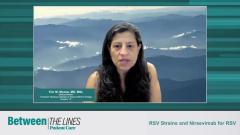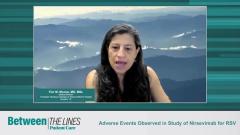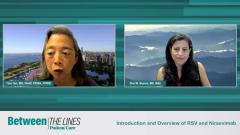
Adverse Events Observed in Study of Nirsevimab for RSV
Experts discuss the results of the safety and efficacy study of nirsevimab for Respiratory Syncytial Virus (RSV) commenting on the adverse events observed in the test and placebo groups.
Episodes in this series

Transcript
Tina Tan, MD, FAAP, FIDSA, FPIDS: The other thing that’s really important when you look at the study is if you look at the adverse events [AEs] that occurred with this monoclonal, there was not much of a difference between the group that got the monoclonal vs the placebo group. And if you look at those who had serious [AEs]…the investigators all felt that the serious [AEs] were not related to the infant either receiving their nirsevimab or the placebo. So, it appears that this monoclonal antibody is actually quite safe to administer to infants of all the different ages to protect them against [respiratory syncytial virus].
Flor M. Munoz, MD, MSc: Right. The [AE] profile is quite balanced. This is exactly why we need placebo groups in these studies. And again, the distribution of the groups by age and by geographic location was quite balanced. I think the [AEs], which could be recorded after administration of this monoclonal antibody, where you have very similar results very much apart between the vaccine and placebo means that other things happen—babies can have fevers or…another set of symptoms—that, in this case, do not seem to be seen more frequently in the group that received the product. So, I agree. Overall, even though this is an injection, there was no obvious direct association with any of these events, including the serious [AEs] to being in the study or receiving the product.
Transcript is AI-generated and edited for clarity.
Newsletter
Enhance your clinical practice with the Patient Care newsletter, offering the latest evidence-based guidelines, diagnostic insights, and treatment strategies for primary care physicians.


